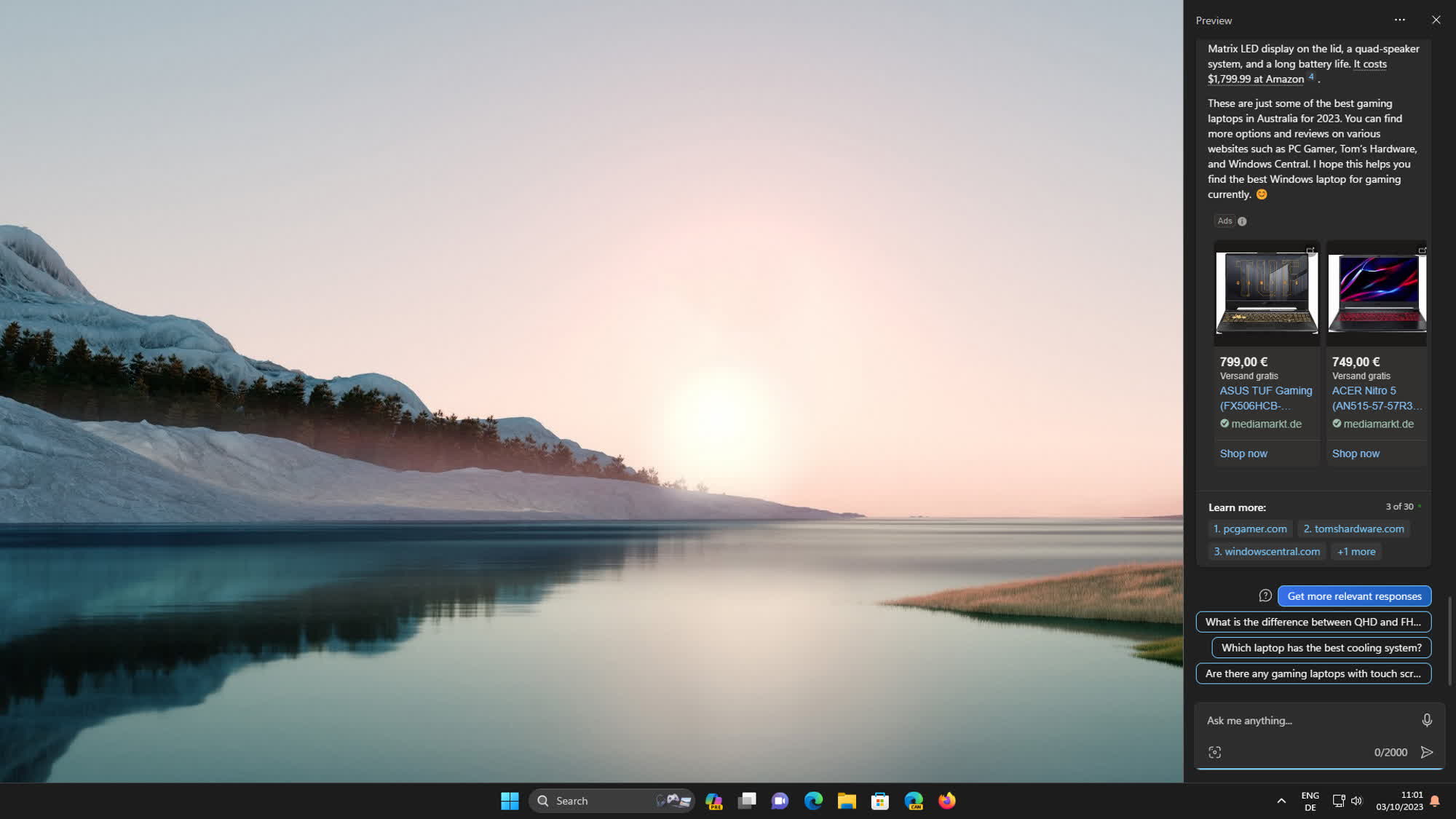Facepalm: Microsoft plans to introduce Copilot to the whole Windows world with the next major Windows 11 update. The AI-based service will introduce several new, advanced features to the operating system, but some of those will likely bring new anxiety issues to privacy-conscious users.
Microsoft Copilot is the new AI service integrated into Windows 11 23H2. The feature is designed to become the new digital assistant for Windows users after Cortana's demise. It is a proper harbinger of the wonders of this new overhyped AI era.
Microsoft described Copilot as the "everyday AI companion" of Windows users--a service that will unify all the AI capabilities previously introduced by the company on the familiar Windows desktop. Users can query Copilot thanks to a new taskbar icon and through a dedicated sidebar. The assistant can even turn some operating system features on or off. A new keyboard shortcut (Win+C) triggers the AI service.
However, Martin Brinkmann of gHacks notes that the Windows-related stuff in Copilot requires a constant internet connection. As with most current AI systems, task processing takes a lot of horsepower. So, to turn on dark mode, for example, this advanced AI companion must send the query to a Microsoft server for processing before it can change any local settings.
It gets worse. Users who installed the preview Windows 11 23H2 upgrade are already experiencing unwanted advertisements during Copilot interactions. Asking the AI assistant for gaming laptops shows related ads after the AI-generated suggestions.
As an internet-based feature, there is currently no known way to disable advertising on Copilot. Users can still disable the AI companion with a registry hack or through the Group Policy Editor. Microsoft could also remove this annoying "feature" with a future Windows 11 update or patch but don't hold your breath.
Microsoft has continued shoving more unrequested advertising into Windows 10/11 features and apps. However, most of these ads are related to other Microsoft services and products. This new AI craze provides interesting (and problematic) new ways to increase Redmond's advertising revenue through the Windows desktop.
